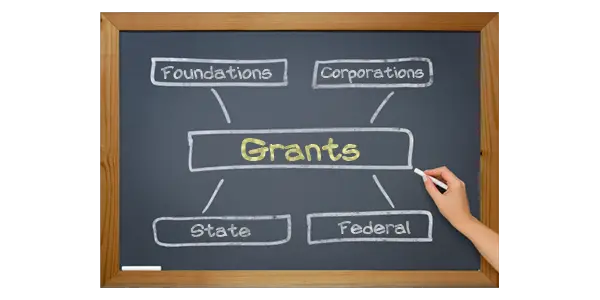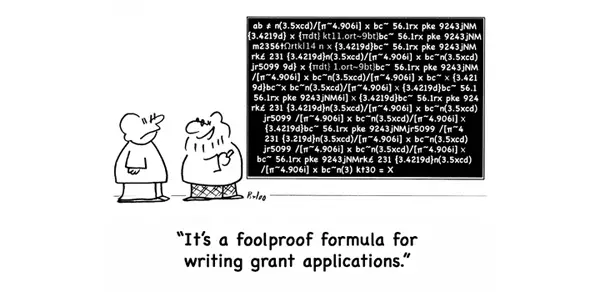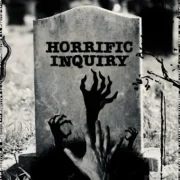How To Apply For Filmmaking Grants (And Why You Should Do It)

Eugene is a filmmaker working in both experimental and narrative…
A lot of indie filmmakers talk about how they’re going to find investors to fund their next film. These mythical “angel investors” will supposedly swoop down with bags of cash and make all your filmmaking dreams come true. But the reality is that these investors generally don’t materialize. Why not? Probably because investing in an independent film is a really bad bet. The vast majority of indie films lose money; it’s even considered a success if you just make back enough money to recoup your costs. Why would a savvy investor want to get caught up in an investment scheme like this?
Thankfully, there are organizations out there with gobs of money who are willing to help the struggling independent filmmaker. Amazingly, these organizations do not want any return on their investment, at least not in a monetary sense. These organizations range from private foundations to the federal government to city- and state-level arts agencies. The grants they give out range anywhere from a few hundred dollars to hundreds-of-thousands of dollars.
In this article, I’ll review some of the main benefits of applying for grants. I’ll also address some of the common excuses I hear from filmmakers for why they don’t apply for grants. Lastly, I’ll list some grants that I’ve applied for in the past year, along with some remarks about how to research similar grants in your part of the world.
Apply for grants: just do it already
Applying for grants is about as much fun as applying for a loan. It involves close scrutiny of your filmmaking practice, your credentials, your background, and your financial strategy. But doing all this has its benefits, even if you don’t get the grant. That’s right — you should absolutely still apply for grants even though you’ll probably be rejected by almost all of them. Here’s why:
Grant writing forces you to write a realistic budget.
Oftentimes, indie filmmakers just wing it when it comes to budgeting. Their grasp of the financials of their project is little more than scribblings on the back of a napkin. But this will not fly with granting organizations. With most grants, you will have to provide a detailed line-item budget. If applying for a grant is the only thing that’ll force you to write a real budget, this alone is worth the time and effort.
Grant writing forces you to start producing your film.
In order to put a budget together, you will have to get quotes from vendors and potential crew. You’ll have to find out how much a permit costs for, say, filming on the local subway. You’ll have to make inquiries about production insurance, camera rentals, and so on. Lo and behold, now you’re producing your film! Sure, you should be doing all of these things anyway, but if you’re not, the process of writing the grant will force you to take some important steps towards getting your film made.
Grant writing can lead to positive changes in your project.
On several occasions, the process of grant writing has actually compelled me to change my project for the better. For example, I struggled in many grant applications to explain my latest film, Self-Deportation: The Untold Tale of a Marginal Woman. What I discovered through this struggle was that my film idea was more of a sight gag than a rich and multifaceted concept. I had to rethink my story, and, in doing so, my film was reborn as something better. Had I not been forced to explain my film over and over again to multiple granting organizations, it’s possible that I would have stuck to my original idea, and the final product would likely have been much weaker as a result.

Grant writing helps you to focus.
When you write a grant application, you have to explain your project to someone who is not at all obligated to like or support your work. This is scary. But the result of this process is that you really have to spend some time thinking about why you are making this film. It also helps you to clarify who your intended audience is, why the story is important, and what is unique about your project. Sometimes filmmakers don’t want to confront these questions, because the answers can be upsetting. But it’s definitely worthwhile to realize, before you’ve committed too much time and money, that your idea is actually not that special, or that it really doesn’t have an audience, or that you’re only making this film because you think other people think the story is important. So, yes, sometimes the result of getting focused is that you abandon your project altogether. And that’s perfectly okay.
You might actually get some money; if not now, then in the future.
The whole point of writing a grant application, of course, is to get money. Some grants actually don’t give out money, but in-kind goods and services like equipment rentals or post-production work, which is pretty much as good as cash to the independent filmmaker. But there are also long-term rewards that extend well beyond the grant you’re applying for today. In the granting world, the rich get richer.
For example, before you can get that $50,000 grant from Creative Capital, you might need to have a record of receiving smaller grants and successfully finishing those projects. Also, any granting organization that rejects you now is getting to know you through that very process. The next time around, if they see that you completed your project and are continuing to work as an artist, they may look upon your application more favorably. As one grant administrator told me, if you’re a known entity to them, that helps them feel confident that you’ll use their money wisely. And what better way to make yourself a known entity than applying and applying again?
Excuses, excuses, excuses
A lot of filmmakers tell me that they don’t apply for grants. Ever. This boggles my mind, and I frequently waste a lot of breath trying to convince them otherwise. Here are some of the common excuses I hear, and my response to each.
I don’t know about these grants.
Ignorance is generally not a good excuse for anything. This is particularly true in the case of filmmaking grants. Most granting organizations want you to know about them and they want you to apply. In fact, the continued funding of their programs is often dependent upon increasing applications every year, so they do everything in their power to make themselves known to you. In Chicago, where I live, there are constantly free grant workshops, panels, etc. How do I find out about these? I sign up for email lists. It’s that simple.
Even if you don’t live in a major city with a thriving arts community, just watch movies and you should know about most of the major grants out there. Perk up at the credits and scrutinize everything that scrolls by on the screen, from the names of the top-billed cast to the lowest below-the-line PA to the people and granting organizations that are often listed in the final thank yous. The credits of an indie film are a treasure trove of information.
It’s not worth all the time and effort.
See above. There are many reasons to apply for grants, even if you’re not likely to get most of them.

I’ll never get a grant; they don’t give grants to people like me.
Sometimes this is true. But, for the most part, you should let the granting committee decide this, instead of excluding yourself beforehand. A lot of granting organizations actually want to help out new and emerging filmmakers, so the fact that you’ve never received a grant or that you don’t have a film degree won’t necessarily be held against you. And those few grants that only go to highly accomplished filmmakers are not usually available through an open application process anyway; you have to be nominated or invited.
The grant awards are not big enough to make it worthwhile.
Most filmmaking grants are small, at least relative to the overall budget of a film. But are you really going to stick your nose up at free money? Also, don’t forget that there’s a lot of non-monetary value in getting a grant — e.g., the public recognition that comes with it, which can help generate interest in your project. And having a record of obtaining grants can help you to get more (and bigger) grants in the future.
I don’t have time to apply for grants.
If you don’t have time to apply for grants, then you don’t have time to be a filmmaker. Close to 100% of the work that goes into writing a grant application is directly related to what you’re doing as a filmmaker. This includes writing a coherent summary of your project, explaining why your project is important, writing a budget, and justifying your budget. If you can’t do this, then why are you trying to make a film?
Grants, granting organizations, and how to find them
Many filmmakers wish for a single website containing a list of all the filmmaking grants. I hear someone ask about this at almost every grant workshop I attend. The reality is that you have to do your own research. There are some helpful lists posted every once in a while (e.g., here’s a helpful list of grants on NoFilmSchool.com), but none of these will be truly comprehensive, since there are too many grants to list, and the ones that are relevant for you will depend on where you live, who you are, and what you do. For instance, a Muslim woman in Los Angeles who makes social documentaries is not going to be applying for the same grants as a white male experimental filmmaker in London. There may be some overlap in the grants they apply to, but not much.

It’s also important to keep in mind that new grants pop up with some regularity, and, just as often, old grants shut down or go on hiatus. For instance, the All Roads Seed Grant, a long-running program at National Geographic, recently discontinued without any prior notice or indication that it was winding down. But around the same time, Technicolor launched Creative District and its monthly $5000 grant program. In the blink of an eye, the indie film grant landscape shifted with the departure of a major player and the arrival of a new one. It’s an ongoing task to stay abreast of all these developments, and there’s unfortunately no one website or resource you can go to that will provide all the relevant information. You have to be that resource.
Here are my three main tips for filmmakers looking for grants:
- Attend grant workshops and ask lots of question,
- Don’t think only about filmmaking grants; look into other grants that could cover your work but which are not specifically for filmmaking, and
- Every time you watch an indie film, study the credits, read articles about the film, and figure out how they got the film made/funded.
Here’s a list of some grants I’ve applied for in the past year:
- Creative Capital
- Women in Film – Finishing Funds Grant
- Japanese American Confinement Sites Grant (a program of the National Parks Service)
- Tribeca All Access
- Center For Asian American Media Fellowship Program
- Puffin Foundation
- Department of Cultural Affairs and Special Events (Chicago)
- Illinois Arts Council Agency
Notice that this list covers a wide range of granting organizations, from government agencies to private foundations to the federal government. Several of these are general arts grants and would probably not come up if you did a Google search for “filmmaking grants.” And one grant is not even an arts grant, but a topical grant that is part of a special fund created by the US Senate for the commemoration of Japanese American incarceration during WWII. How did I find out about all these grants? I try to keep my eyes and ears open, and whenever I see a film or other art project that interests me, I try to find out who funded it. What organizations and individuals supported it? Financed it? Partnered with it?

My last tip is to consider fiscal sponsorship with a 501(c)3 non-profit organization. Fiscal sponsorship does not itself provide you with money, but it brings your film project under the auspices of a non-profit, which is eligible for certain grants that you as an individual artist are not. Typically, fiscal sponsorship does not involve any transfer of rights or creative control, so you still own your film when it’s done. Also, it does not mean your film cannot make money. And it does not prevent you from also applying for grants available to individuals.
All in all, fiscal sponsorship is a great arrangement because it gives you access to more grants, many of which are larger than those available to individual artists, plus it can boost the prestige and visibility of your project by associating your film with a known and respected organization. Your film will need to be in line with the mission statement of the sponsoring non-profit, but it’s not difficult to find a match if your film addresses an important issue and has some large social significance.
Conclusion
Applying for grants is a lot of work. There have definitely been times when I’ve applied for grants and felt it was a waste of time. But as one Chicago-based filmmaker recently said at a grant writing workshop I attended, “If you want to be a professional independent filmmaker, you need to become a professional grant writer as well.” Grant writing doesn’t have to become a chore, however, and as I’ve discussed in this article, the process of grant writing should further your filmmaking practice regardless of whether you actually receive a monetary reward.
If you are a filmmaker, what is your experience with (writing) grants? Share your thoughts below!
(top image source: forbes.com)
Does content like this matter to you?
Become a Member and support film journalism. Unlock access to all of Film Inquiry`s great articles. Join a community of like-minded readers who are passionate about cinema - get access to our private members Network, give back to independent filmmakers, and more.
Eugene is a filmmaker working in both experimental and narrative forms. His films have screened at festivals, micro-cinemas, and on broadcast television, including Chicago Underground Film Festival, Athens International Film + Video Festival, Athens Digital Arts Festival (Athens, Greece), DC Asian Pacific American Film Festival, Korea Expat Film Festival (Seoul, Korea), Anthology Film Archives, Portland Art Museum, and on Time Warner Cable.













